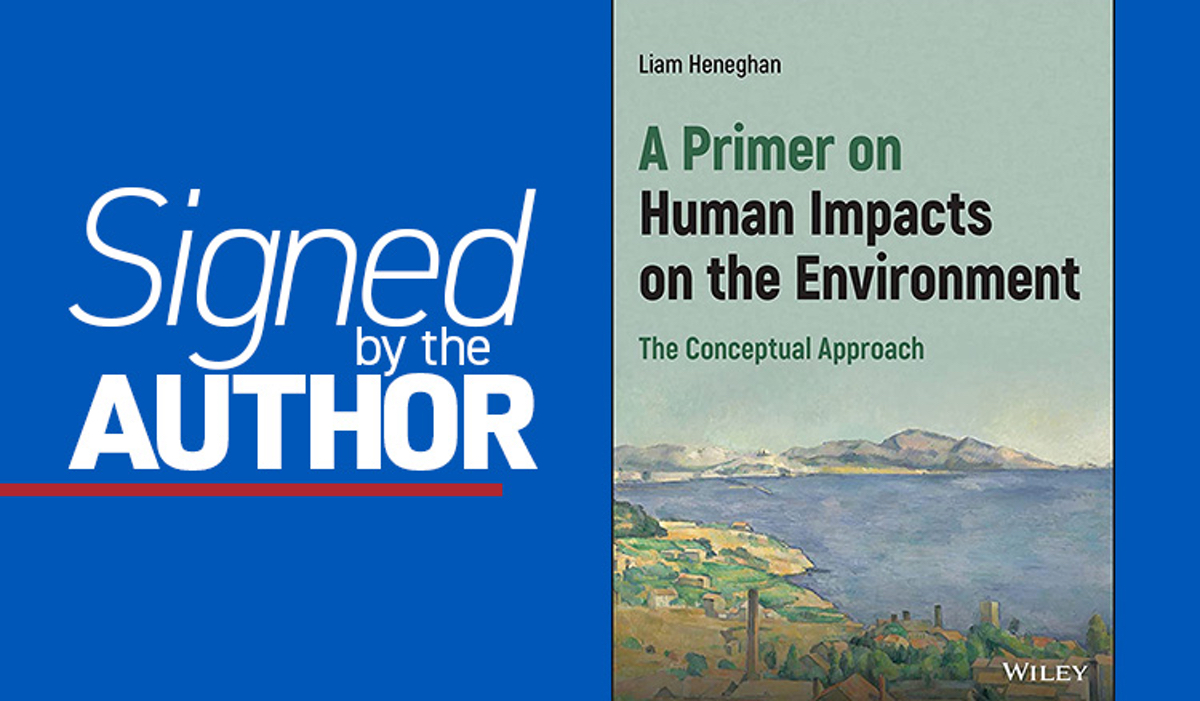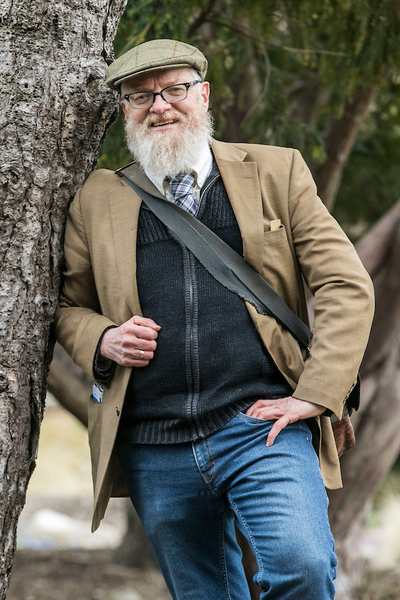 (DePaul University/Jeff Carrion)
(DePaul University/Jeff Carrion)
A Primer on Human Impacts on the Environment: The Conceptual Approach
By: Liam Heneghan, Environmental Science and Studies
In "A Primer on Human Impacts on the Environment: The Conceptual Approach," I explore the intricate relationships between humanity and Earth in an accessible and engaging style. Replete with real-world examples and drawing from classic and contemporary scholarship, the book adapts the fundamental conceptual models of the environmental disciplines to assess the risks human beings are taking with their home planet. The conceptual approach of this primer challenges readers to think across multiple disciplines to reveal the 'big picture' that is all too often lost in the details of contemporary environmental studies.
Who or what inspired you to write this book?
 Liam Heneghan (DePaul University/Jamie Moncrief)
Liam Heneghan (DePaul University/Jamie Moncrief)
My students in both my home department of Environmental Science and Studies and across the university community are my inspiration for this book.
In all, about 900 students over a 25-year period have taken my classes on human impacts on the environment. Early at DePaul, I realized that it would be very challenging to compress all that is known about the human transformation of the global environment into a 10-week course. Thus, over the years, my teaching has evolved into an effort to host conversations about the best means of conceptually framing this relationship.
What are the most appropriate and interesting models that allow us to reflect upon environmental risk and to plan the best approaches to mitigating environmental problems? The conceptual emphasis, which is the cornerstone of this work, reflects the efforts I have undertaken alongside generations of DePaul students to grapple with the compelling and important challenges that confront humanity. The book is dedicated to these students.
What's the most surprising thing you learned while writing this book?
It was written at the height of the ongoing COVID-19 pandemic. The events of recent years have made it ominously clear to many people that managing risk and blunting the global impact of catastrophes is no mere a theoretical matter. In writing this book about the risks emanating from an altered global environment, I have found compelling and sobering parallels between the now-familiar catastrophe of the pandemic and the oftentimes less visible risks associated with climate change and biodiversity collapse.
Persuade someone to read your book in less than 50 words
I have been reflecting upon the relationship between humans and the environment for over half a lifetime. Environmental thought tends towards gloominess, yet this book (like its author) is realistic yet hopeful. The book may help you commit to the work of creating and sustaining a flourishing future.
About the author:
Liam Heneghan is a professor of Environmental Science and Studies at DePaul. His research focuses on urban ecology, invasive species and the efficacy of ecological restoration. His previous book was "Beasts at Bedtime: Revealing the Environmental Wisdom in Children’s Literature" (University of Chicago Press, 2018).
Publisher and publication date:
John Wiley and Sons, May 2023
Editor's note: The Chicago Academy of Sciences/Peggy Notebaert Nature Museum will hold a free event June 8 that features Heneghan and his book and includes an audience Q-and-A. Registration is online.
Signed by the Author allows DePaul faculty and staff to introduce their recently published or upcoming book or chapter to the university community.
See more books published by faculty and staff.